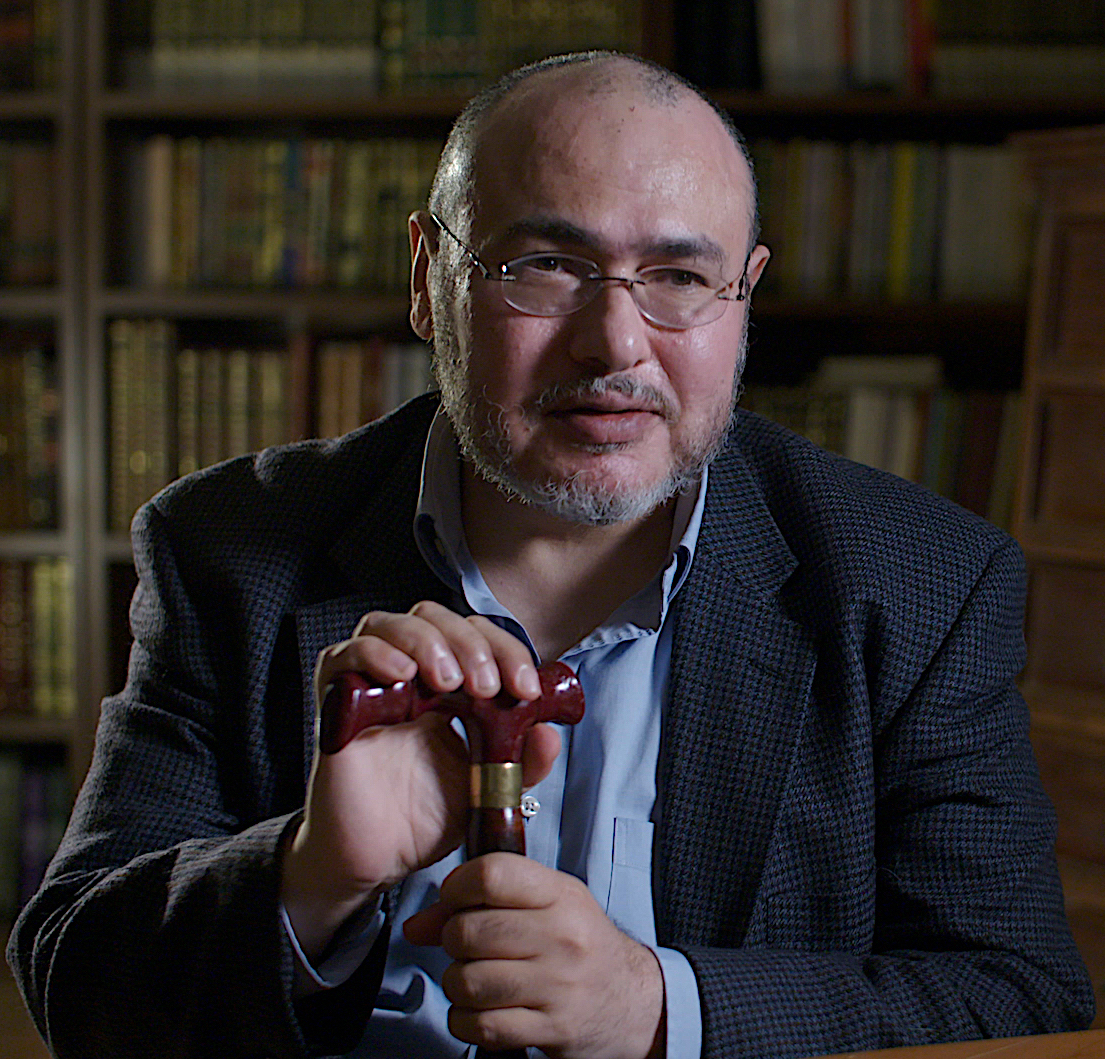Dr. Abou El Fadl: 2020 Recipient of the Martin E. Marty Award for the Public Understanding of Religion
The Martin E. Marty Award for the Public Understanding of Religion was established in 1996 to recognize extraordinary contributions to the public understanding of religion. The award goes to individuals whose work has a relevance and eloquence that speaks, not just to scholars, but more broadly to the public as well.
In 2020, the Committee for the Public Understanding of Religion selected Dr. Khaled Abou El Fadl as the recipient of the Marty Award in recognition of his outstanding contributions to the public understanding of Islam and its diverse intellectual and ethical tradition through his writings and public intellectual activities. He is the Omar and Azmeralda Alfi Distinguished Professor of Law at the UCLA School of Law. Previously, Dr. Abou El Fadl taught at the University of Texas, Princeton University, and Yale University. His JD is from the University of Pennsylvania and his PhD in Islamic Studies is from Princeton University.
Dr. Abou El Fadl is one of those rare scholars who effortlessly and effectively bridges the worlds of academia, policymaking, and public engagement. His publications focus on universal themes of human dignity, morality, human rights, justice, and mercy, and he has written powerfully on beauty as a core moral value of Islam. To date, he has authored thirteen monographs and innumerable articles and book chapters. Many of his publications reach beyond an academic, specialist audience and are geared towards a broader reading public. An outstanding example of such a work is his 2005 book The Great Theft: Wrestling Islam from the Extremists (HarperCollins). It was named one of the Top 100 Books of the year by Canada’s Globe and Mail (Canada’s leading national newspaper), and has been translated into Arabic, Japanese, Spanish, and other languages. Written shortly after September 11, the book intended to challenge in a sober, reflective way, the outbreak of anti-Muslim hysteria and Islamophobia generally in the West at that time. At the same time, the book also mounts a searing criticism of extremist ideologies that have developed since the twentieth century in a number of Muslim-majority countries.
Abou El Fadl has been very vocal in his criticism of human rights abuses in a number of such countries, which has caused him to be banned from them. Undeterred, he continues to critique militancy and political authoritarianism, wherever one may encounter them. Since the 2016 US presidential elections, he has been publicly critical of the resurgence in racism and white supremacist movements in this country. In 2017, he founded the Usuli Institute, an educational organization that facilitates public conversations about ethics, critical thinking, and human dignity based on the Islamic intellectual tradition.
Dr. Abou El Fadl’s 2014 book Reasoning with God: Reclaiming Shari'ah in the Modern Age (Rowman & Littlefield), considered to be his magnum opus, is groundbreaking in its scope and challenges a number of public misconceptions of what the Sharia is, especially as a number of states in this country have introduced anti-Sharia legislation. His other books include: Speaking in God’s Name: Islamic Law, Authority and Women (Oneworld Press, 2001); Rebellion and Violence in Islamic Law (Cambridge University Press, 2001); And God Knows the Soldiers: The Authoritative and Authoritarian in Islamic Discourses (University Press of America, 2001); Islam and the Challenge of Democracy (Princeton University Press, 2004); The Place of Tolerance in Islam (Beacon Press, 2002); and The Search for Beauty in Islam: A Conference of the Books (Rowman & Littlefield 2005). The Authoritative and Authoritarian in Islamic Discourses (3rd edition, Al-Saadawi Publications, 2002) has been published in multiple languages and reprinted by multiple presses. In all these publications, he has made powerful religious and ethical arguments, drawing deeply from Islamic thought, in order to promote democracy, religious and social pluralism, human, and especially, women’s rights. He has written op-ed pieces, in both English and Arabic, addressing many of these issues which have been published in influential newspapers, such as the New York Times, Washington Post, Los Angeles Times, Wall Street Journal, and others.
Among his many honors and distinctions, Dr. Abou El Fadl has been awarded the University of Oslo Human Rights Award, called the Leo and Lisl Eitinger Prize, in 2007, and was named a Carnegie Scholar in Islamic Law in 2005. He has served on the United States Commission for International Religious Freedom and has been a member of the board of directors of Human Rights Watch. In 2005, he was listed as one of LawDragon’s Top 500 Lawyers in the Nation. In 2013, he was recognized among “The 50 Smartest People of Faith” by TheBestSchools.org, and was awarded the “American Muslim Achievement Award” in 2014. In 2016, he was named one of the World’s 500 Most Influential Muslims, and has also been ranked among “The Power 500 List of the World’s Most Influential Arabs (2011, 2012).
Taken together, Dr. Abou El Fadl’s scholarship and public engagement represent a remarkable contribution to the public understanding of religion. His willingness to marshal his expertise and weigh in on difficult, often contentious, conversations in the global public sphere about issues such as human rights, refugees and asylum, women’s rights, religion and politics, racism, and religious bigotry, reflects exceptional intellectual and moral courage. In awarding him the Marty Award, we celebrate the courage it takes to write, speak, and think in these spaces, in spite of the considerable risks involved in taking public, principled positions on many of these issues.






